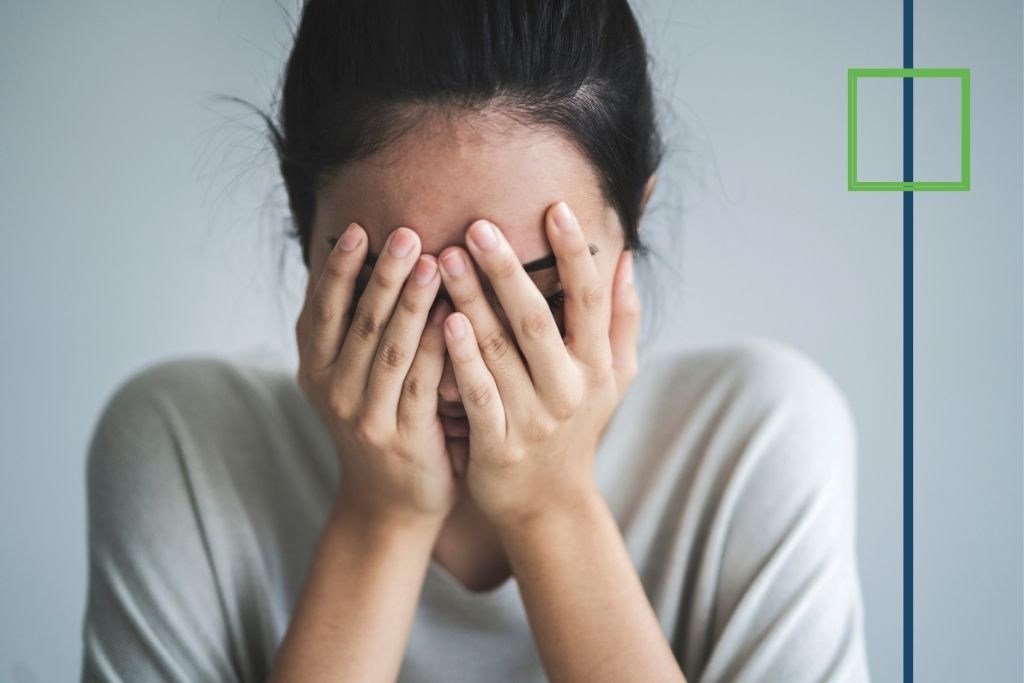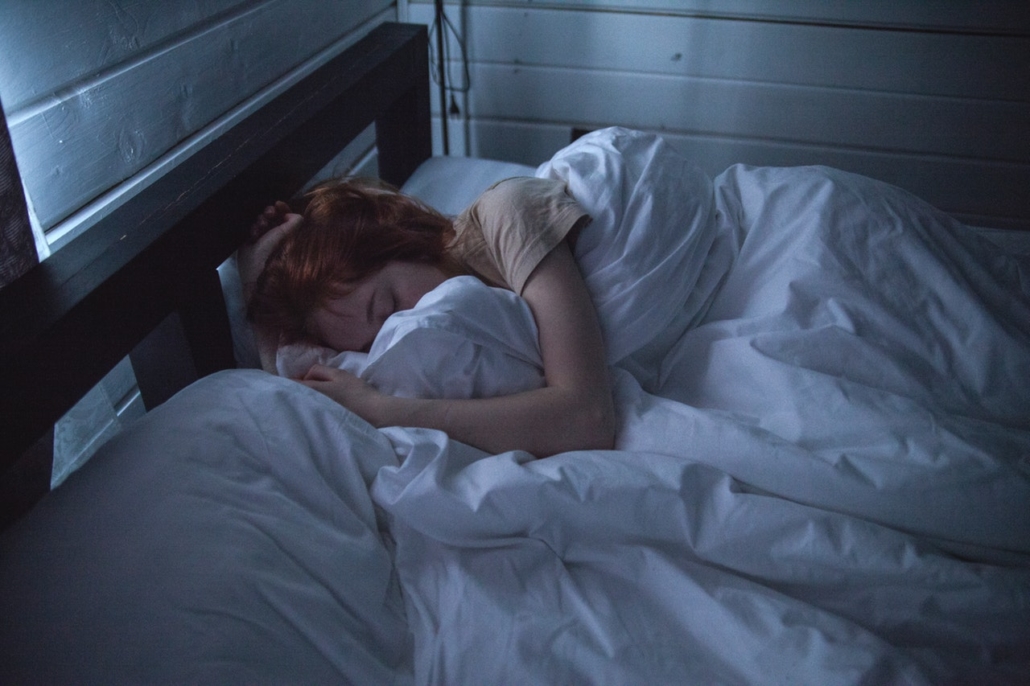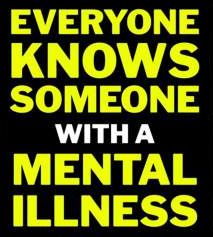What is Social Anxiety Disorder?
According to the National Institute of Mental Health (NIMH) [1], Social anxiety disorder (also called social phobia) is a mental health condition. It is an intense, persistent fear of being watched and judged by others. This fear can affect work, school, and your other day-to-day activities. It can even make it hard to make and keep friends. But social anxiety disorder doesn’t have to stop you from reaching your potential. Treatment can help you overcome your symptoms.
Social anxiety disorder, usually given the acronym “SAD,” is a condition that interferes with someone’s ability to engage with others in their life. It shows in many ways, and it isn’t always obvious that an individual is experiencing a social anxiety disorder.
For instance, someone in your life who seems as confident as can be in social situations might be undergoing a terrible amount of anxiety each time they prepare to leave the house. Yet, on the other hand, they might also be feeling several symptoms as they talk to you, appearing to be as bubbly as ever.
Typically, the fear or anxiety a person experiences is in response to a situation that can be embarrassing or painful. Rejection, embarrassment, mockery, scrutinization, and failure come to mind often in people experiencing SAD.
Most individuals with this mental condition understand that their fears are unfounded. Sure, there is always a slight possibility that things can go wrong in any situation for any person, but those situations are often once in a lifetime or absent from a person’s life.
Someone struggling with a social anxiety disorder might dread the thought of meeting up with their closest childhood friend, for instance, knowing full-well that the person loves and accepts them as they are.

What Does It Feel Like?
Social anxiety disorder is a common type of anxiety disorder. Someone with a social anxiety disorder feels symptoms of fear or anxiety in a particular or all social situation, such as dating, meeting new people, being on a job interview, or talking to a cashier in a store. Doing everyday things in front of people—such as drinking or eating in front of others or using a public restroom—also causes fear or anxiety. The person is afraid that they will be judged, humiliated, and rejected.
The fear that individuals with social anxiety disorder have in social situations is so strong that they feel it is beyond control. As a result, it gets in the way of going to work, attending school, or doing everyday things. People with social anxiety disorder may worry about these and other things for weeks before they happen. Sometimes, they end up staying away from events or places where they think they might have to do something that will embarrass them.
Some people with social anxiety disorder do not have anxiety in social situations but have performance anxiety instead. They feel physical symptoms of anxiety in playing a sports game, giving a speech, dancing, or playing a musical instrument on stage.
Social anxiety disorder often starts during youth in extremely shy people. Unfortunately, social anxiety disorder is not uncommon; research suggests that about 7 percent of Americans are affected. Without treatment, social anxiety disorder can last for many years or a lifetime and prevent a person from reaching their full potential.
What are the signs and symptoms of social anxiety disorder?
When having to perform in front of or be around others, people with social anxiety disorder tend to:
- Blush, sweat, tremble, feel a rapid heart rate, or feel their “mind going blank”
- Feel nauseous or sick to their stomach
- Show a rigid body posture, make little eye contact, or speak with an overly soft voice
- Find it scary and difficult to be with other people, especially those they don’t already know and have a hard time talking to them even though they wish they could
- Be very self-conscious in front of other people and feel embarrassed and awkward
- Be very afraid that other people will judge them
- Stay away from places where there are other people
What Causes Social Anxiety Disorder?
Like many other mental health disorders, social anxiety disorder probably stems from a complex interaction of environmental and biological factors. Potential causes include:
- Inherited traits. Anxiety disorders tend to run in families. However, it isn’t entirely clear how much of this may be due to genetics and how much is due to learned behavior.
- Brain structure. A structure in the brain called the amygdala (uh-MIG-duh-luh) may control the fear response. Individuals with an overactive amygdala may have an exaggerated fear response, causing increased anxiety in social situations.
- Environment. Social anxiety disorder may be a learned behavior — some people may develop significant anxiety after an unpleasant or embarrassing social situation. Also, there may be an association between social anxiety disorder and parents who model anxious behavior in social situations or are more controlling or overprotective of their children.
How Can It Affect Your Life?
Social anxiety disorder prevents you from living your life. You’ll avoid situations that most people consider “normal.” You might even have a hard time understanding how others can handle them so easily.
When you avoid all or most social situations, it affects your personal relationships. It can also lead to:
- Low self-esteem
- Negative thoughts
- Depression
- Sensitivity to criticism
- Poor social skills that don’t improve

Risk factors
Several factors can increase the risk of developing social anxiety disorder, including:
- Family history. You’re more likely to develop social anxiety disorder if your biological parents or siblings have the condition.
- Negative experiences. Children who experience teasing, bullying, rejection, ridicule or humiliation may be more prone to social anxiety disorder. In addition, other negative events in life, such as family conflict, trauma or abuse, may be associated with this disorder.
- Temperament. Children who are shy, timid, withdrawn or restrained when facing new situations or people may be at greater risk.
- New social or work demands. Social anxiety disorder symptoms typically start in the teenage years, but meeting new people, giving a speech in public or making an important work presentation may trigger symptoms for the first time.
- Having an appearance or condition that draws attention. For example, facial disfigurement, stuttering or tremors due to Parkinson’s disease can increase feelings of self-consciousness and may trigger social anxiety disorder in some people.
Complications
Social anxiety disorder can control your life if left untreated. Worries can interfere with relationships, work, school, or enjoyment of life. This disorder can cause:
- Low self-esteem
- Negative self-talk
- Poor social skills
- Trouble being assertive
- Suicide or suicide attempts
- Hypersensitivity to criticism
- Isolation and difficult social relationships
- Low academic and employment achievement
- Substance abuse, such as drinking too much alcohol
Other anxiety disorders and mental health disorders, particularly substance abuse problems and major depressive disorder, often happen with social anxiety disorder.
Do I have social anxiety or am I just shy?
Are you extremely afraid of being judged by others?
Are you very self-conscious in everyday social situations?
Do you avoid meeting new people?
If you have been feeling this way for at least six months and these feelings make it hard for you to do everyday tasks—such as talking to people at work or school—you may have a social anxiety disorder.

Unfortunately, social anxiety disorder (SAD) is usually dismissed as just extreme shyness. The reason many people don’t seek help for SAD is that they don’t realize that they have a recognized psychiatric condition. Statistics show that although symptoms usually start in childhood, only about 50% of adults with the disorder receive treatment, and those who do seek treatment wait a long time to do so, 15 to years after symptoms begin. Many people are a little bit shy, but those with social anxiety disorder (also called social phobia) can become overwhelmed with anxiety in simple social situations.
How long does it take to get a social anxiety diagnosis?
In order to be diagnosed with social anxiety disorder, you must have been experiencing the symptoms outlined in the DSM-5 for at least 6 months or more. The DSM-5 diagnostic criteria also require ruling out other mental disorders such as panic disorder, body dysmorphic disorder, or autism spectrum disorder. Therefore, it may take multiple sessions with a mental health professional before they can confidently diagnose social anxiety disorder.
Can I self-diagnose social anxiety?
Only a qualified mental health professional, such as a psychologist or a psychiatrist, can diagnose a mental health disorder like social anxiety. Anxiety disorders can be difficult to diagnose or identify properly because many of them have overlapping symptoms. Additionally, most anxiety disorders have something to do with the fear of rejection or becoming an outcast.
It’s also difficult to isolate some disorders from one another because there are situations where one anxiety disorder can lead to another. For example, someone with social anxiety disorder might isolate themselves more and more, starting to exhibit symptoms of depression. Depression might become the dominant disorder and prove difficult to separate from anxiety. Furthermore, not all anxiety disorders are sourced from singular irregularities in the brain.
Mental difficulties are far more complicated than issues like treating a cold. If you do think that you’re experiencing some of the signs of an anxiety disorder, consult a mental health professional.
How Is Social Anxiety Disorder Treated?
Different treatment options can help individuals manage their symptoms, gain confidence, and overcome their anxiety.
However, social anxiety disorder may persist throughout life without treatment, though it may feel better or worse at certain times.
Healthcare professionals will usually recommend treatment with medication, psychotherapy, or both.
Psychotherapy
Psychotherapy, or talk therapy, helps individuals understand their experiences and create an effective coping method.
There are many types of psychotherapy, including:
- CBT
- Interpersonal therapy
- Psychodynamic therapy
- Family therapy
CBT is a common treatment. It aims to help the person recognize and change negative thoughts or beliefs about social situations. It also aims to change people’s behaviors or reactions to situations that trigger anxiety.
CBT can help people recognize that their thoughts, not those of others, can determine how they react and behave.
Exposure therapy, or cognitive delivered exposure, can also help. With this approach, the person gradually works up to face the situations they fear with a therapist and a safe environment.
Medications
A range of medications can help people manage the symptoms of social anxiety disorder.
The three main types are antianxiety medications, antidepressants, and beta-blockers. The sections below will look at these options in more detail.
Antidepressants
Selective serotonin reuptake inhibitors, which people mainly use as antidepressants, can also help with the symptoms of social anxiety disorder. However, they may take several weeks or months to take effect.
Some examples include:
- sertraline (Zoloft)
- paroxetine (Paxil, Paxil CR)
- fluoxetine (Prozac, Sarafem)
Serotonin-norepinephrine reuptake inhibitors, which are another class of antidepressants, can also help.
Some examples include:
- venlafaxine (Effexor, Effexor XR)
- duloxetine (Cymbalta)
- desvenlafaxine (Pristiq)
Antianxiety medications
Antianxiety medications act quickly to reduce the symptoms of anxiety, but doctors will usually recommend them as a short-term solution, as they can create dependence.
Benzodiazepines are a common class of antianxiety drug. Some examples of these include alprazolam (Xanax) and clonazepam (Klonopin).
In 2020, the Food and Drug Administration (FDA) strengthened their warning about benzodiazepines. Using these drugs can lead to physical dependence, and life-threatening withdrawal. Combining them with alcohol, opioids, and other substances can result in death. It is essential to follow the doctor’s instructions when using these drugs.
Beta-blockers
Beta-blockers help block the physical effects of anxiety, such as sweating, tremors, and a rapid heartbeat. They do this by blocking the stimulating effects of adrenaline.
Doctors usually prescribe these drugs for specific situations, such as having to give a presentation, but not for ongoing treatment.

If you or your loved one suffer from a social anxiety disorder, professional anxiety disorder treatment can become necessary. To learn more, contact us today at the We Level Up FL Treatment Facility, we provide utmost care with doctors and medical staff available 24/7 for life-changing and lasting recovery. We can help provide an enhanced opportunity to return to a fulfilling and productive life.
Sources:
[1] NIMH – https://www.nimh.nih.gov/health/publications/social-anxiety-disorder-more-than-just-shyness